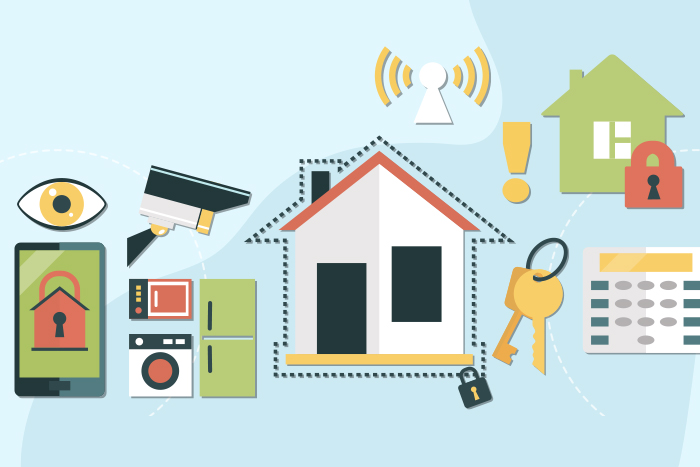Home Security System Basics for Seniors
As we get older, feeling safe at home becomes more important than ever. For many seniors, home is not just a place to live—it’s where you feel most comfortable and independent. But unfortunately, older adults can be more vulnerable to break-ins or scams, especially if they live alone.
A home security system can help protect you, your belongings, and your peace of mind. Whether it’s a full system with cameras and alarms or simple changes like better locks and lighting, there are ways to make your home safer—no matter your budget.
What is a home security system?
A home security system is a group of devices that work together to help protect your home. These can include:
Door and window sensors
Motion detectors
Security cameras
Alarms or sirens
24/7 monitoring services
When something triggers the system—like a door opening unexpectedly or someone walking near your house—it sends an alert. Depending on your setup, it might contact you, sound a loud alarm, or notify the police.
Modern systems are often wireless, easy to use, and can be controlled from a smartphone or keypad. Some even allow family members or caregivers to get alerts, too.
Who should consider a home security system?
Anyone can benefit from a home security system, but they can be especially helpful for:
Seniors who live alone
People with limited mobility
Those who travel often or are away from home during the day
Homes in neighborhoods with a history of break-ins
Even if you live in a safe area, having a system in place can help you feel more secure—and allow you and your loved ones to worry less about the security of your home.
Why It Matters
Feeling safe in your home is about more than locks and alarms. It’s about peace of mind—knowing you’re protected and prepared. A good home security setup can help you stay independent longer, reduce anxiety, and give your family confidence that you’re okay.
What to Think About Before Buying
If you’re thinking about getting a home security system, here are a few things to consider:
Ease of Use: Look for systems that are simple to arm and disarm. Some offer medical alert buttons, too.
Monitoring Options: Do you want a company to monitor the system and call emergency services if needed? Or do you prefer self-monitoring, where alerts come to your phone and you call the police if needed?
Installation: Some systems are DIY and easy to set up yourself. Others may need professional installation.
Cost: Some companies charge monthly fees, while others are a one-time purchase. Be sure to ask about cancellation policies, especially if you're on a fixed income.
Customer Support: Choose a company with good reviews and reliable customer service.
According to the FBI, homes without security systems are more than twice as likely to be broken into as those with one installed.
Low-Cost Ways to Make Your Home Safer
You don’t have to spend a lot to improve your home’s security. Here are some free or budget-friendly tips:
Lock all doors and windows, even when you’re home. Many burglars enter through unlocked doors.
Add motion-sensor lights near doors and driveways to discourage intruders.
Install motion-detected cameras near entry points. These can act as a powerful deterrent and let you see who’s outside—some systems are affordable and easy to install yourself.
Trim bushes and trees near windows so no one can hide behind them.
Ask a neighbor to collect mail or packages if you’re away. A stack of packages near your door is a giveaway to would-be intruders that you’re not currently home and might be gone for an extended period of time.
Use timers for lights or radios so it looks like someone’s home.
Put up security signs or window decals—even if you don’t have a system, it can be a strong deterrent.
Get to know your neighbors. A trusted neighbor can be one of your best safety tools.
Is a home security system right for you?
Whether you need a security system or not will depend on a variety of factors and your own comfort level. But it may be worth looking into if you’ve ever felt uneasy about being home alone, if you travel frequently, or if you want to make sure help can arrive quickly in an emergency.
Even small changes—like better lighting or talking with neighbors—can go a long way toward helping you feel safer and more in control.
Sources:
FBI Uniform Crime Reporting Program: Burglary Statistics
Federal Trade Commission: How to Avoid Scams When Shopping for a Home Security System

